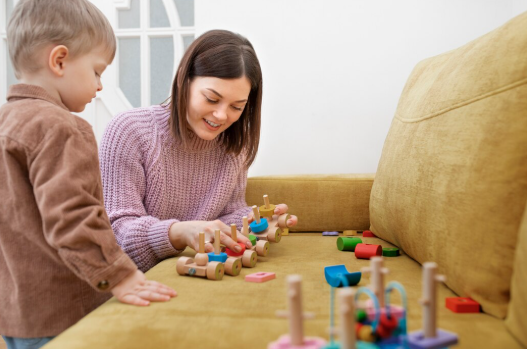
The internet has been a rapidly developing phenomenon until 1980, when it first entered our lives in 1960. In 1991, the invention of the worldwide web (www) has become the most common communication medium in the world, especially due to the increasing number of users since 1995. Personally, I spend most of my day online. In this article, I will support and talk about this topic with some arguments about the use of the internet and whether this use can lead to an addiction. I use the smartphone to search for information on the internet, to shop, to browse social media, to communicate with my social circle, and to play games. This usage can reach approximately 7-8 hours daily. Our main question here; Is it an addiction to use or to keep the internet busy for our daily lives for hours? To me, the answer to this question is yes.
Today, internet usage is used for different purposes. For example, socialization, information flow, communication, trade. The Internet has many advantages, as well as many other disadvantages. Easy access to information, excess resources, communication and socialization through social media can be given as examples of the advantages provided by the internet. On the other hand, there are various disadvantages created by the Internet in terms of physical problems, addiction, psychological development and social development that arise as a result of the widespread use of the internet. Despite the negativities that arise when one uses the internet, the use of online social media, active games during the day, it indicates the disruption of the work that needs to be done in daily life, and the aggression and anger dependence on the person. Situations such as ‘’ perception of beauty ‘’, ‘’ like ‘’ imposed on social media, especially for young adolescents, are corrosive during adolescence. On the other hand, the fact that shopping is so easy also changes the habits of consuming people. While the Internet supports the development of people on the one hand, it can also cause addiction with its uncontrolled use. Internet addiction can be mentioned if excessive internet use is increasing day by day, if this request cannot be prevented, if the person gives trouble, uneasiness when it is deprived, if daily functions affect social life, school and family life. Internet use of up to 40-80 hours per week in addiction is in question. For the first time, Ivan Goldberg (1996) defined the term “internet addiction” and opened it up for discussion, and developed indicators for internet addiction in line with the diagnostic criteria of substance abuse in DSM-IV. On the other hand, in 1996, Young identified Internet addiction based on DSM-IV’s pathological gambling diagnostic criteria. This means that we can talk about internet addiction today.
One of the strongest predictors of internet addiction is the insecure attachment of the person. According to the researches, it is observed that people who experience insecure attachment from the primary caregiver’s loneliness, anger, and social insufficiency, to meet this social loneliness needs by social media and connection. In studies, it has been determined that there are positive relationships between internet addiction and secure attachment, negative, insecure attachment (unregistered, fearful and obsessive). Individuals who do not feel comfortable and safe in interpersonal communication and interactions tend to use online environments to communicate. States that individuals who have low self-efficacy perception in real social environments and show symptoms such as fear, shyness, and anxiety use online and internet more frequently. Indeed, online environments are the environments where real social environments such as shyness, fear and anxiety are minimized. The person may hide himself, and may not be face-to-face interviews, as in the social environment. For this reason, individuals who have such problems in interpersonal relationships frequently use internet environments.
On the other hand, internet use of adolescents is not much different from other people. Adolescence is a turbulent process. They use it to deal with depressive symptoms and reduce psychological tension. In addition, Yen et al. (2008) emphasize that adolescents use the internet as a tool to deal with emotional problems. Two of the eight-item diagnostic criteria Young created for internet addiction are related to the effectiveness of negative emotions on internet use. These; “Using the Internet to avoid problems or to avoid negative emotions (such as helplessness, guilt, depression, anxiety)” and “feeling uneasy, depressed or anger if internet use is reduced or stopped completely”. According to Young, negative emotions and daily life stress cause people to turn to online and social media. Here we can talk about social connection and fear of missing out. As people turn to these environments, they are detached from their real social environment and suppress their negative feelings. Especially adolescents are at risk of fear of missing out. Lack of connection with others and anxiety of being disconnected cause negative life and mood. In this context, internet use, which has reached the level of addiction, brings withdrawal symptoms. When an internet addicted individual stays away from the internet, they may feel feelings of restlessness and anger. For this reason, Young’s (1998) “using the internet to escape from problems or to avoid negative emotions (such as helplessness, guilt, depression, anxiety)” also shows that the internet is used as a dysfunctional coping strategy.
I can say that internet usage has become an addiction. It facilitates and speeds up our lives for the subject over the internet. However, when it is not used consciously, it causes different negative dimensions. Look at this situation interpersonally. I am talking about insecure attachment problems and adolescents are more susceptible to internet addiction. Apart from that, the situation is not much different in other people. As a personal opinion, I am someone who spends an average of 7-8 hours of screen time between days. Sometimes it takes a great deal of our lives to get away from electronic transactions or internet. For this reason, I think there is something missing when I stay away. In addition, people with depression and social anxiety prefer online environments more because they decrease their anxiety levels rather than being active in social life. We are going away from the internet as symptoms of anxiety, restlessness, anger felt in the person. These symptoms are addictive. For this reason, the widespread use of the internet and feelings of deprivation in people.
Bu makalenin DoktorTakvimi web sitesinde yayımlanması, yazarın açık izniyle yapılmaktadır. Web sitesindeki tüm içerikler, fikri ve sınai mülkiyet mevzuatı kapsamında uygun şekilde korunmaktadır.
DocPlanner Teknoloji A.Ş. web sitesi tıbbi tavsiye sunmaz. Bu sayfanın içeriği, metinler, grafikler, görseller ve diğer materyaller de dahil olmak üzere, yalnızca bilgilendirme amacıyla oluşturulmuştur ve tıbbi tavsiye, teşhis veya tedavinin yerini almak amacı taşımaz. Herhangi bir sağlık sorununuzla ilgili şüpheniz varsa, bir uzmana danışınız.



